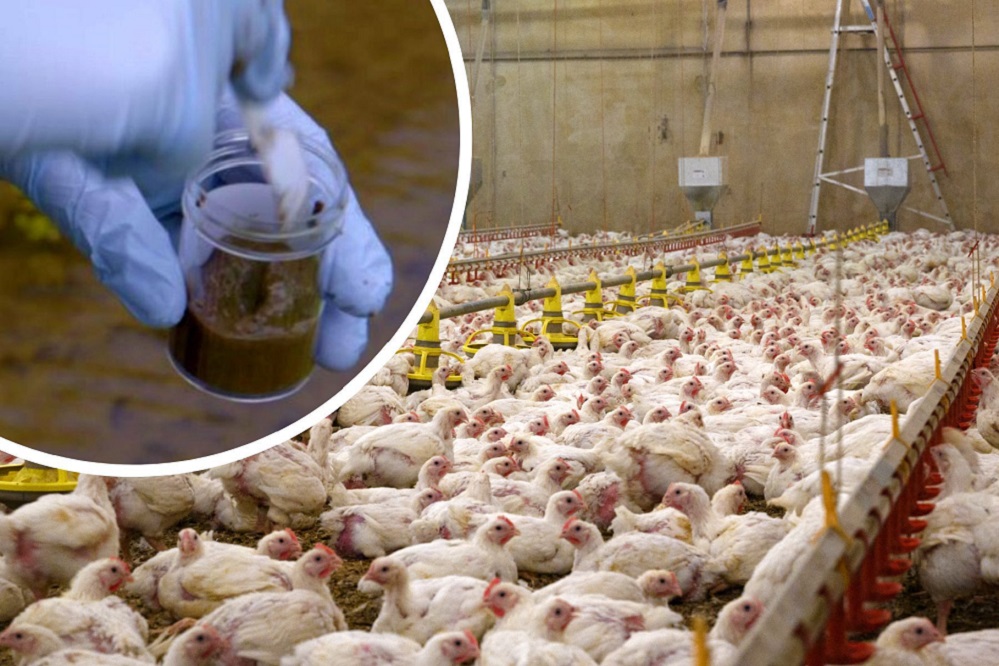Health risk from farm livestock ‘superbugs’ highlighted in River Wye study

Gavin McEwan, Local Democracy Reporter
A study of the Wye and other rivers in areas of intensive livestock farming has found they contain antibiotic-resistant “superbugs” which could pose a threat to human health.
MP Philip Dunne said the study highlights “the risk in our rivers from emerging antimicrobial resistance” resulting from routinely giving antibiotics to farm animals.
“This is another good reason why water quality monitoring needs to be ramped up to avoid people becoming gravely ill,” said the Conservative MP for Ludlow, who chairs the parliamentary environmental audit committee and has frequently raised issues of river water quality.
In what it says is the first research of its kind, World Animal Protection (WAP) worked with the Alliance to Save Our Antibiotics and the Bureau of Investigative Journalism (BIJ) to test water and sediment from waterways near 12 poultry and pig farms, including in the Wye valley.
The respected Fera Science lab found that E. coli and S. aureus bugs in the samples showed resistance to a class of important antibiotics known as sulfonamides, more so downstream than upstream of the farms, “suggesting resistance is entering the environment from these farms”, the BIJ said.
Fera Science did not respond to confirm its involvement.
Golden Valley volunteer group River Dore Citizen Science tweeted: “Delighted to take part in this study. Horrific results.”
By contrast, lower levels of resistant bacteria were found downstream of higher-welfare outdoor pig and chicken farms, with no such bacteria found by an extensive broiler unit in Herefordshire.
The World Health Organisation has said that unless addressed, antibiotic resistance will be “disastrous for human and animal health, food production and global economies”.
WAP farming campaigns manager Lindsay Duncan said: “Our report shows that our rivers are awash with superbugs.
“We are calling on the UK government to raise welfare standards and ban routine preventative use of antibiotics on farm animals. If the welfare of farm animals was improved, there would be no need for this dangerous and unnecessary use of antibiotics that is such a threat to human health.”
The charity acknowledges that the UK farming industry has reduced its antibiotic use by over half since 2014, but claimed “far greater” reductions are still needed.
The EU banned all routine use of antibiotics in livestock at the start of this year.
Antibiotics
A Defra spokesperson said: “Antibiotics sales for use in livestock are at their lowest-ever level and we are committed to building on these reductions.
“We do not support routine preventative use of antibiotics in animals – they should not compensate for poor husbandry practices and we will continue to look into strengthening legislation in this area.”
NFU National Farmers Union policy manager Sarah Faulkner said British farming “is a leader in the responsible use of antibiotics”, adding: “Herefordshire farmers and those further afield continue to work hard to protect animal health and welfare using alternative strategies.”
Meanwhile, a new Herefordshire Council report on the link between the county’s many intensive poultry units and human health failed to find conclusive links between the two, but suggested that might simply be due to lack of hard data.
“Without data to back up anecdotal evidence, it will remain difficult to properly investigate, assess and address some of the possible health impacts of the industry,” it concluded.
It recommends the council seek to take on responsibility for the permits controlling intensive poultry units, currently the responsibility of the Environmental Agency, and use income from these to fund its own oversight of farms.
Support our Nation today
For the price of a cup of coffee a month you can help us create an independent, not-for-profit, national news service for the people of Wales, by the people of Wales.




